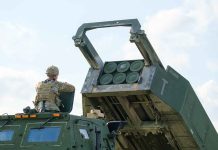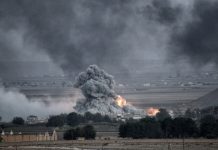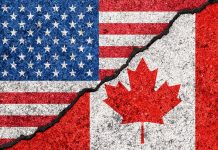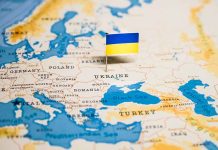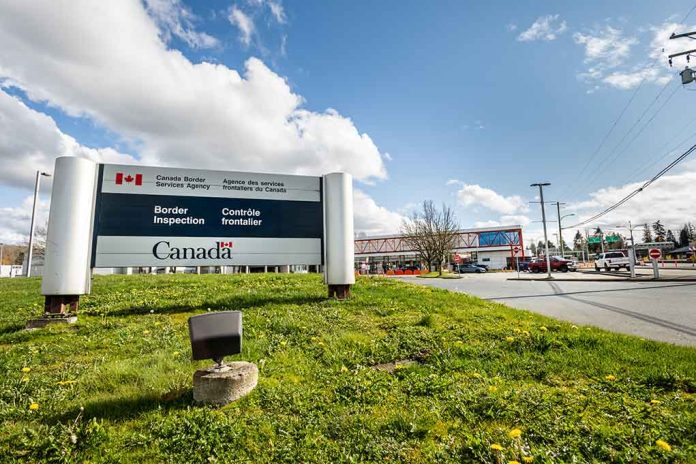
Republicans are sounding the alarm over the northern U.S. border — will Canadian Gazan refugee asylum requests be the nation’s latest security nightmare?
At a Glance
- Republicans urge tighter northern border security amid Gazan refugee influx in Canada.
- Canada issues “Refugee Travel Documents” to Gazans, potentially easing U.S. entry.
- Concerns over possible entry of inadequately vetted terrorists through U.S.-Canada border.
- DHS claims entrants are vetted, but internal reports suggest otherwise.
- Skyrocketing Border Patrol apprehensions at the northern border fuel Republican demands for action.
Battle at the Border: Rising Security Concerns
In response to the growing number of Gazan refugees as well as an ongoing issue with Ukranians, seeking asylum in Canada, Republicans are stepping up their call for increased security measures at the northern U.S. border. The party is raising red flags over the Biden administration’s current border control strategies, which they believe may fall short in mitigating potential security threats tied to the refugee influx.
Canada’s issuance of “Refugee Travel Documents” to Gazans has Republicans worried. These documents are accepted by U.S. Citizenship and Immigration Services, possibly providing a gateway for Gazans — including those with potential ties to Hamas — to enter the U.S.
Despite Republican Push-Back, Biden Administration Weighs Bringing Palestinian Refugees to US https://t.co/zhZ8iWX5cx
— CBN News (@CBNNews) May 17, 2024
Realities of Vetting: A Critical Look
Republicans are particularly concerned about the background checks — or lack thereof — on individuals from Palestinian Territories. They argue inadequate vetting could enable terrorists to exploit the porous northern border to gain entry into the U.S.
DHS Secretary Alejandro Mayorkas maintains that all entrants are vetted, but DHS Office of Inspector General reports contradict this, revealing that over 1,000 known or suspected terrorists have been apprehended at the U.S.-Canada border since fiscal 2021. This glaring discrepancy has fueled Republican demands for answers from Mayorkas about Palestinians entering the U.S.
Republicans call for enhanced northern border security as Gazans flock to Canada https://t.co/aO1b7loIM5
— John Solomon (@jsolomonReports) August 16, 2024
A Growing Crisis
Under Biden and Harris, the U.S. has witnessed the highest number of terrorist apprehensions in history, predominantly at the northern border, further justifying Republican concerns.
Canada recently announced an increase in temporary resident visas for Palestinians in Gaza with Canadian relatives, a move that Republicans fear might exacerbate the situation.
According to the National Counterterrorism Center, “It is the largest and most capable militant group in the Palestinian territories and one of the territories’ two major political parties.”
The surge in antisemitism and violence against Jews in America hasn’t gone unnoticed, with Republican senators, led by Sen. Tom Cotton, calling for measures against anti-Semitic, pro-terrorist mobs on college campuses.
Calls for Concrete Action
Sen. Marco Rubio urged the cancellation of visas and removal of foreign nationals supporting Hamas. Meanwhile, Biden issued a memo to prevent the deportation of “certain Palestinians,” creating further tension as Democrats blocked measures to deport pro-Hamas supporters
“Montana communities are confronting more cartel-driven crime and drugs,” said Kaitlin Price, spokesperson for Republican Gov. Greg Gianforte. Republicans, led by Rep. Mark Green, have subpoenaed Mayorkas for CBP terrorist data after previous unanswered requests.
So here we stand, with the Biden administration planning to expedite asylum processing at the U.S.-Canada border due to the surge in migrant crossings. These modifications to the “Safe Third Country” agreement with Canada are poised to impact migrant deportations and streamline the process. But the question remains: will these changes be enough to ensure national security?


